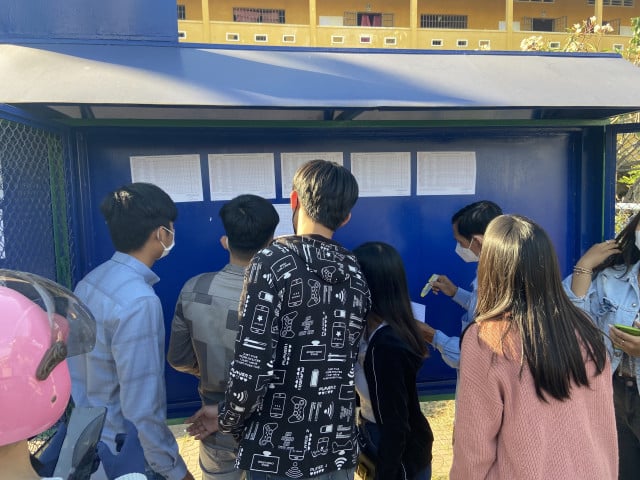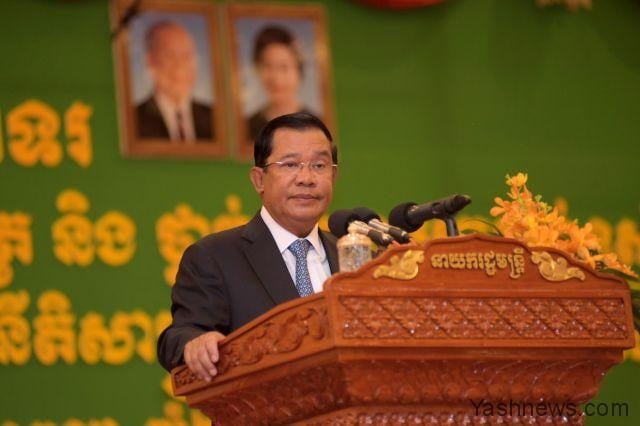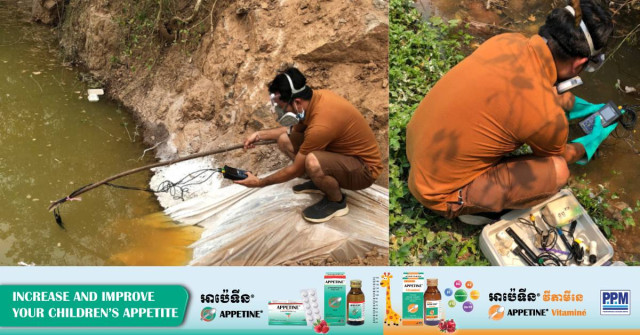Experts Offer Advice for Students Heading to University

- By Sam Sopich
- January 17, 2022 2:11 PM
With the national grade 12 exams over, many students now feel lost as they struggle to choose a degree and a university that matches with their ambitions, but experts are on hand to advise
PHNOM PENH--Some students have voiced their concerns over how to prepare for university and what subjects to choose, others meanwhile feel confident—experts have weighed in to give tips to struggling students.
Hak Thira, a grade C student who just passed national grade 12 exam said that she is really struggling and concerned about her future as she wants to undertake her bachelor’s degree in Phnom Penh, but her family cannot afford it.
“I don’t have enough capacity to do a bachelor’s degree in Phnom Penh since my family cannot afford to cover rent, food and school fees,” she said. “I don’t know which subject should I choose and also I don’t know which school I should choose to study at.”
Living in Pea Reang District, Prey Veng Province, Thira said that “I am really complicated, I have no goals and I feel very lost right now.”
Brasoeur Molyka, director of the Training Department at the Techo Sen Institute (TSIPWT) said that this decision will determine a student’s future and career, adding that it will have a lifelong impact on their values, their lifestyle and the opportunities that will be available for themselves, their family and society as a whole.
For those who do not have clear goals and are struggling to choose what undergraduate program to study, Molyka said these are real concerns that need to be addressed urgently, but noted that many students do not receive the comprehensive information needed to help make that decision in an informed way.
“In high school, they may not have access to academic counselling, especially in remote rural areas where information is inaccessible and not widely disseminated,” she said. “Because of this, young people choose skills that are different from their own abilities, different from their passions and different from their needs."
She advised young students that they should learn to understand themselves, know their strengths, weaknesses, preferences and gather information from surrounding sources extensively. Consulting with experts who have experience in academic counselling can help to analyze the market’s needs and the future prospects of any given career.
Besides just looking at the education programs offered by various higher education institutions, Molyka recommended assessing each university’s level of recognition—both nationally and internationally—as well as the extra-curricular activities offered, the infrastructure and resources available to students and whether the professors are recognized experts in their fields.
“If the parents are not able to continue their education immediately, they can apply for scholarship opportunities for a skill that they love, or can start working in a related role to gain experience be able to save money to pay for tuition,” she added.
Pheng Sochan, who scored a grade A on the national grade 12 exam, said that she hopes to go into accounting and finance with a view to promoting financial awareness among young women.
“I am still nervous about my future but my passion is being an expert in accounting and finance, I’ve loved this topic since I was in high school. This skill will mainly focus on mathematics under the English program which can shape both my finance and language skills,” she said.
However, despite having a clear goal, Sochan also said she is struggling to choose a university, but through researching the available courses related to her ambitions, it becomes easier.
“After I discovered my passion, I researched which standard university is the top outstanding institution for this area by internationally recognized standards,” Sochan said. “Seeking advice from my seniors and my mentor on choosing a major and a university makes me optimistic about my future.”
Sann Vathana, under-secretary of state at the Ministry of Education advised students against enrolling at multiple courses at different universities, instead, he said, find a course that offers additional lessons in English and in computing.
“Even if you have a degree from heaven and you do not know a foreign language or how to use a computer, it is a little difficult,” he said.
Vathana added that students should not, whenever able, choose universities on the basis of it being close to home or because it is cheaper than others—especially, he said, they should not choose based on where their friends are studying—but instead students should choose a good course at a reputable school, even if it means working to be able to pay the school fees.
“Learn what skills you love, choose skills that match your passion,” Vathana said. “Do not die of stagnation by only studying, spend time travelling or doing social work or youth engagement as tasteful people.”















